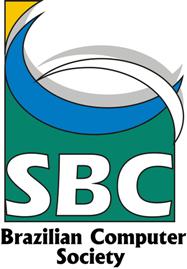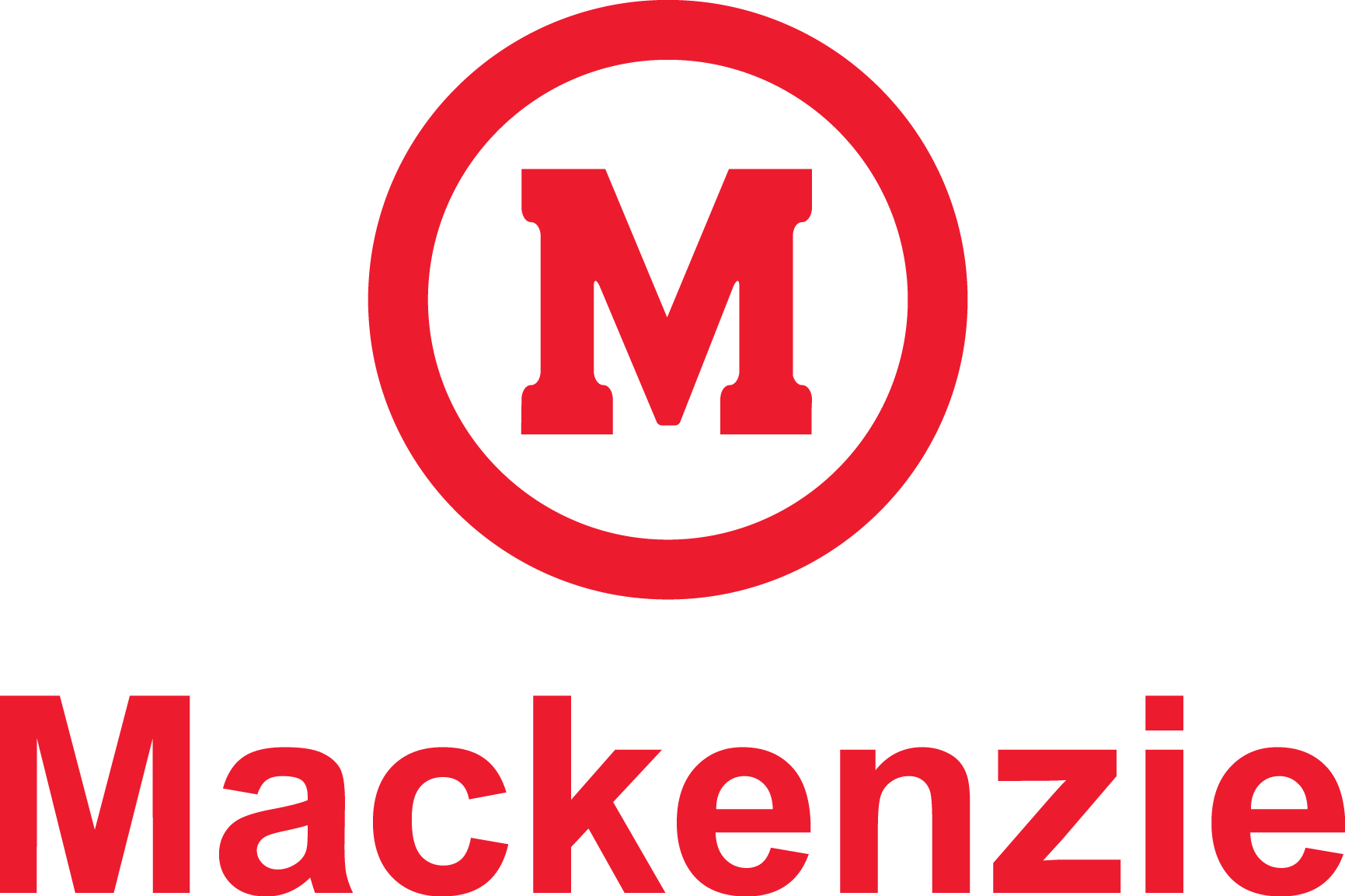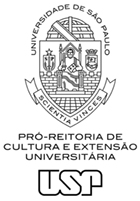"SBES is 25" Special Track - Call for papers
Index:
IMPORTANT DATES
Abstract submission
June 15, 2011
Full paper submission
June 17, 2011
Author notification
July 15, 2011
Camera-ready version
August 10, 2011
Submission to the Special Issue at JSS journal
January 20, 2012
Special Track "SBES is 25": Call for Papers
Celebrating the 25th Anniversary of the Brazilian Symposium on Software Engineering
SBES 2011 - 25th Brazilian Symposium on Software Engineering
São Paulo - SP, Brazil
September 28-30, 2011
Supported by the Brazilian Computer Society (SBC)
Highlights
- Keynote speech by Prof. Daltro Nunes
- Both short and full papers are being solicited
- Paper authors invited for submitting to an upcoming JSS special issue: 'Software Engineering in Brazil: Retrospective and Prospective Views'
Software Engineering in Brazil: Past, Present and Future
The year 2011 marks the twenty-fifth anniversary of the birth of the Brazilian Symposium on Software Engineering (SBES). The 25th edition of SBES will be held in São Paulo, 26-30 September 2011. This symposium laid out both the progress and vision of the Brazilian research in Software Engineering over the last 25 years. Since the first edition, the technical research tracks have been of very high quality and very competitive in terms of its paper acceptance rate (e.g. around 15% over the last 10 years). Throughout its history, SBES contributed to the establishment and growth of specific communities, which influenced key Software Engineering areas in Brazil, South America and world wide. For instance, several well-established symposia are spin-offs of SBES, such as the Brazilian Symposium on Formal Methods (SBMF) and the Brazilian Symposium on Software Quality (SBQS). More recent contributions of SBES are (not limited to) the Ibero-American Workshop on Requirements Engineering (WER), and the Latin-American workshops on Aspect-Oriented Software Development (LA-WASP) and Experimental Software Engineering (ESELAW). Of course, many other examples of SBES contributions are out there.
In this context, the special track "SBES is 25" intends to bring together a collection of well-described views about the past, present and future of the Brazilian Software Engineering research. We believe that this event will become a key milestone for the following work on the field in Brazil. In particular, it is expected that the special track will serve as a reference for researchers, practitioners and educators to understand the most recent innovations, trends, experiences and concerns involving the Brazilian Software Engineering research.
The Theme and Topics Covered
The tremendous success of all SBES editions makes us to believe that the event will continue playing similar roles for the next decades as well. Hence, the goal of this special track is to revisit the Software Engineering directions in Brazil after 25 years the first SBES edition was held. This call for papers is soliciting high-quality submissions that describe retrospective and prospective views of the Software Engineering research in Brazil. The submissions could also present interesting perspectives about the impact of Software Engineering (SE) in Brazil as well as identify key SE research challenges for the future. Some examples of topics to be addressed are (but not limited to):
- a broader assessment of the state of the art in Brazilian SE research
- an retrospective of 25 years of specific SE research themes in Brazil
- visionary research topics for contemporary SE, e.g. definition of challenges for the development of next-generation software systems
- a review of the industry-university collaboration in Brazil
- industrial perspectives of SE in Brazil
- a reflective report about the emergence and establishment of SE undergrad courses in Brazilian universities
- a review of the impact of the SE research in the international landscape
- identification of gaps and directions for the Brazilian SE research in the future
SBES, CBSoft and the Venue
Promoted annually by the Brazilian Computer Society, the Brazilian Symposium on Software Engineering (SBES) has typically gathered nearly 500 people, including researchers, students, and practitioners working on the field. SBES is the flagship Brazilian event on Software Engineering and, in its 25th edition, the symposium will be held near to the heart of São Paulo city, at the Universidade Presbiteriana Mackenzie, from September 26 to September 30, 2011.
SBES is an event of the 2nd Brazilian Conference on Software: Theory and Practice – CBSoft 2011, http://www.each.usp.br/cbsoft2011 – which will also host three other well-established Brazilan symposia:
- 15th Brazilian Symposium on Programming Languages (SBLP)
- 14th Brazilian Symposium on Formal Methods (SBMF)
- 5th Brazilian Symposium on Software Components, Architectures and Reuse (SBCARS)
For the first time these symposia will be held in São Paulo - SP, a city of prominence in research and development in both academic and industrial fields and which offers great possibilities for cultural, artistic and gastronomic tourism. CBSoft 2011 will be held at the main campus of the Universidade Presbiteriana Mackenzie. The campus is located in the central region of São Paulo, near - for example - the Avenida Paulista, the (Sé) cathedral and the Republic Square.
Paper Submission and Presentation
Submitted papers can be written in Portuguese or English. Submission in English is strongly encouraged since the symposium proceedings are made available at the IEEE Digital Library. Papers submitted to SBES must not have been simultaneously submitted to any other forum (conference or journal), nor should they have already been published elsewhere. The acceptance of a paper implies that at least one of its authors will register for the symposium.
Submitted papers will be reviewed at least by three referees, based on its originality, relevance to the track "SBES is 25", and clarity of presentation. We are seeking submissions of both short (up to 5 pages long) and full (up to 10 pages) papers. The size limits include all the figures and references.
All submissions must be in Adobe Portable Document Format (PDF) and must follow the IEEE 2-column conference format available at: http://www.ieee.org/portal/cms_docs/pubs/confpubcenter/pdfs/samplems.pdf
Papers should be submitted electronically through JEMS system.
Authors of accepted full papers will be invited for a 25-min presentation. All or some of the authors of short papers (depending on the number of accepted papers) ** might be ** invited for presentation too.
To be submitted along with the camera ready version: copyright assignment term.
Important
Authors who have registered in the JEMS system their papers by the deadline (ie, June 15th) will be able to upload the file until the next Friday (June 17th), 23:59. Importantly, the basic information of the paper (title, authors and abstract) *must* have been registered by the deadline (June 15th).
Best Paper Award and Special Issue
The full papers accepted in this special track will be also considered for the award of the best papers of the symposium.
All the authors of both short and full papers will be invited to submit to a special edition of Journal of Systems and Software (JSS), entitled: 'Software Engineering in Brazil: Retrospective and Prospective Views'.
The deadline for submissions to this issue is 20 January 2012.
Organizing Chairs
SBES Chairs
- Marcos Lordello Chaim, EACH - USP
- Marco Aurelio Gerosa, IME - USP
CBSoft Chairs
- Marcelo Fantinato, EACH - USP (General Chair)
- Luciano Silva, FCI - Mackenzie (Co-chair)
Program Committee Chair
Alessandro Garcia, PUC-Rio
Program Committee
- Adenilso Simão, ICMC - University of São Paulo, Brazil
- Alessandra Russo, Imperial College London, UK
- Alfredo Goldman, IME - University of São Paulo, Brazil
- Ana Moreira, The New University of Lisbon, Portugal
- Antônio Tadeu Azevedo Gomes, LNCC, Brazil
- Antonio Francisco Prado, Federal University of São Carlos, Brazil
- Arndt von Staa, PUC-Rio, Brazil
- Augusto Sampaio, Federal University of Pernambuco, Brazil
- Auri Marcelo Rizzo Vincenzi, Federal University of Goiás, Brazil
- Carlos Lucena, PUC-Rio, Brazil
- Carolyn Seaman, University of Maryland, USA
- Cecilia Rubira, Unicamp, Brazil
- Christina Chavez, Federal University of Bahia, Brazil
- Claudia Werner, COPPE /UFRJ, Brazil
- Claudio Sant’Anna, Federal University of Bahia, Brazil
- Dalton Serey, Federal University of Campina Grande, Brazil
- Daltro Nunes, UFRGS, Brazil,
- Daniel Berry, University of Waterloo, Canada
- Daniela Cruzes, Norwegian University of Science and Technology, Norway
- Danny Weyns, Katholieke Universiteit Leuven, Belgium
- Eduardo Almeida, Federal University of Bahia, Brazil
- Eduardo Aranha, Federal University of Rio Grande do Norte, Brazil
- Eduardo Figueiredo, Federal University of Minas Gerais, Brazil
- Ellen Francine Barbosa, ICMC - University of São Paulo, Brazil
- Fabiano Ferrari, Federal University of São Carlos, Brazil
- Fabio Queda Bueno da Silva, Federal University of Pernambuco, Brazil
- Fernanda Alencar, Federal University of Pernambuco, Brazil
- Fernando Castor, Federal University of Pernambuco, Brazil
- Flavia Delicato, Federal University of Rio Grande do Norte, Brazil
- Flavio Oquendo, European University of Brittany - UBS/VALORIA, France
- Gledson Elias, Federal University of Paraíba, Brazil
- Guilherme Travassos, COPPE/UFRJ, Brazil
- Gustavo Rossi, Universidad Nacional de La Plata, Argentina
- Itana Maria de Souza Gimenes, State University of Maringá, Brazil
- Jaelson Freire Brelaz de Castro, Federal University of Pernambuco, Brazil
- Jair Leite, Federal University of Rio Grande do Norte, Brazil
- João Araújo, The New University of Lisbon, Portugal
- Jorge Luis Becerra, Polytechnic School of the University of São Paulo, Brazil
- José Conejero, University of Extremadura, Spain
- José Maldonado, ICMC - University of São Paulo, Brazil
- Julio Leite, PUC-Rio, Brazil
- Karina Villela, Fraunhofer IESE, Germany
- Leonardo Murta, UFF, Brazil
- Leonor Barroca, The Open University, UK
- Manoel Mendonça, Federal University of Bahia, Brazil
- Marcelo Fantinato, University of São Paulo, Brazil
- Marcelo Maia, Federal University of Uberlândia, Brazil
- Marcio Delamaro, University of São Paulo, Brazil
- Paulo Masiero, ICMC - University of São Paulo, Brazil
- Mauro Pezze, University of Milano Bicocca, Italy and University of Lugano, Switzerland
- Márcio Barros, Unirio, Brazil
- Mehmet Aksit, University of Twente, The Netherlands
- Miriam Capretz, University of Western Ontario, Canada
- Nabor Mendonca, University of Fortaleza, Brazil
- Nelio Cacho, Federal University of Rio Grande do Norte, Brazil
- Nelly Bencomo, Lancaster University, UK
- Nelson Rosa, Federal University of Pernambuco, Brazil
- Oscar Pastor, Polytechnic University of Valencia, Spain
- Otávio Lemos, Federal University of São Paulo, Brazil
- Patricia Machado, Federal University of Campina Grande, Brazil
- Paulo Borba, Federal University of Pernambuco, Brazil
- Paulo Merson, Software Engineering Institute, USA
- Paulo Pires, Federal University of Rio de Janeiro, Brazil
- Phil Greenwood, Lancaster University, UK
- Rafael Bordini, Federal University of Rio Grande do Sul, Brazil
- Rafael Prikladnicki, PUCRS, Brazil
- Regina Braga, Federal University of Juiz de Fora, Brazil
- Ricardo Choren, IME-Rio, Brazil
- Ricardo Falbo, Federal University of Espírito Santo, Brazil
- Roberta Coelho, Federal University of Rio Grande do Norte, Brazil
- Rogerio de Lemos, University of Kent, UK
- Rosana Braga, ICMC - University of São Paulo, Brazil
- Rosângela Penteado, Federal University of São Carlos, Brazil
- Sam Malek, George Mason University, USA
- Sandra Fabbri, Federal University of São Carlos, Brazil
- Sandro Morasca, University of Insubria, Italy
- Sérgio Soares, Federal University of Pernambuco, Brazil
- Silvia Abrahão, Polytechnic University of Valencia, Spain
- Silvia Vergilio, Federal University of Paraná, Brazil
- Simone Barbosa, PUC-Rio, Brazil
- Thais Vasconcelos Batista, Federal University of Rio Grande do Norte, Brazil
- Tiago Massoni, Federal University of Campina Grande, Brazil
- Uirá Kulesza, Federal University of Rio Grande do Norte, Brazil
- Vander Alves, University of Brasília, Brazil
Steering Committee
- Alessandro Garcia, PUC-Rio
- Manoel Mendonça, UFBA
- Márcio Delamaro, ICMC-USP
- Paulo Borba, UFPE
- Thais Batista, UFRN


